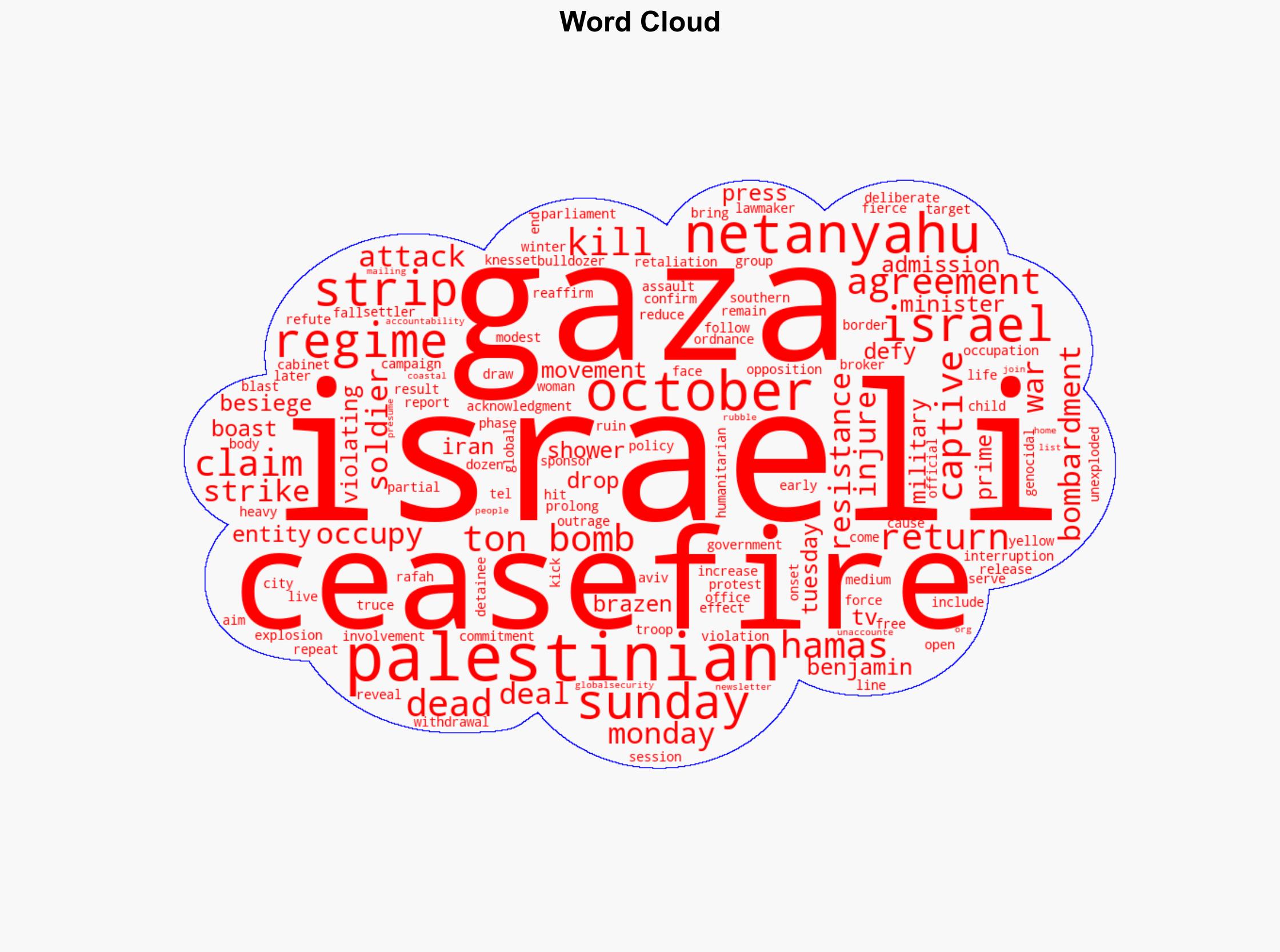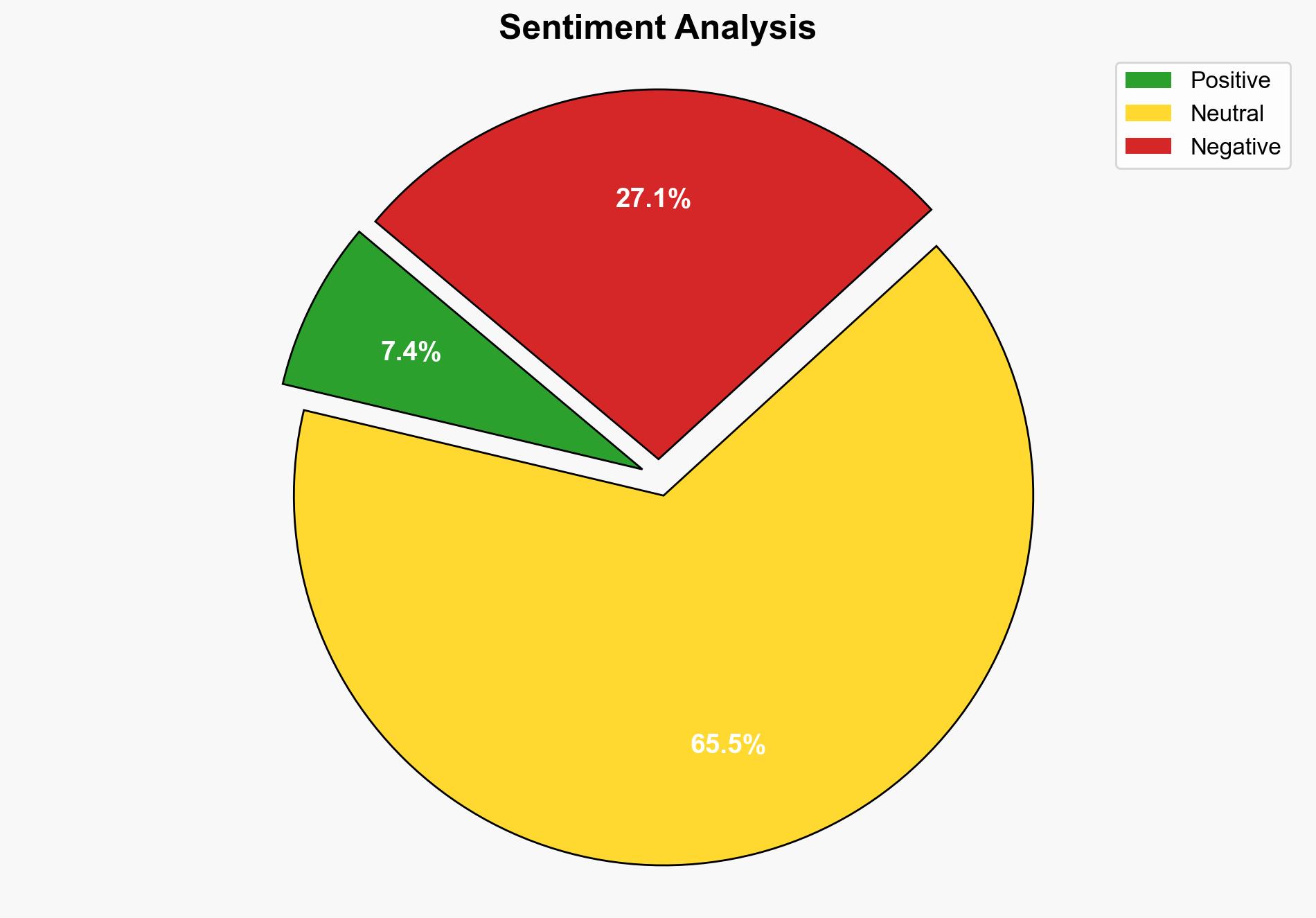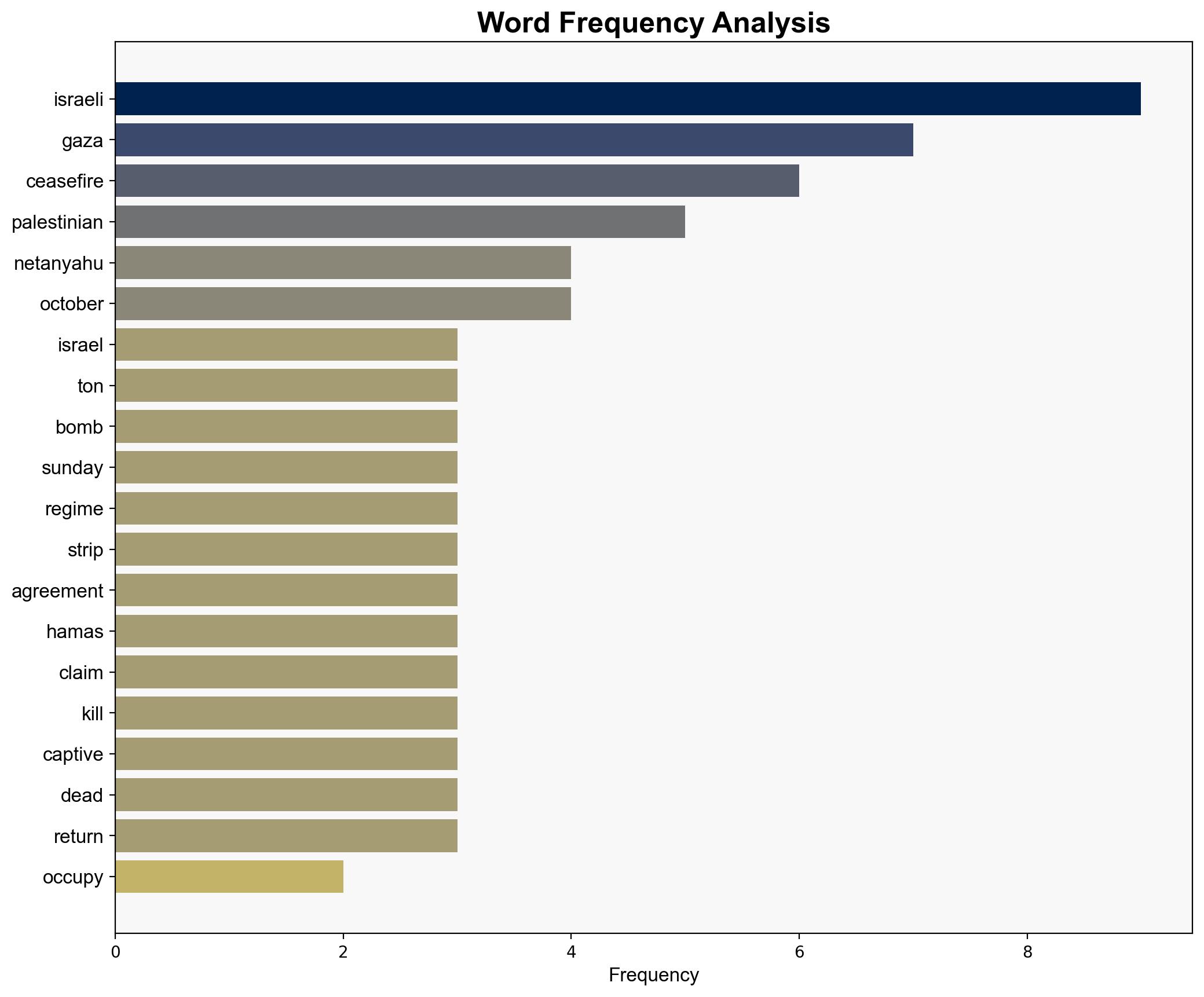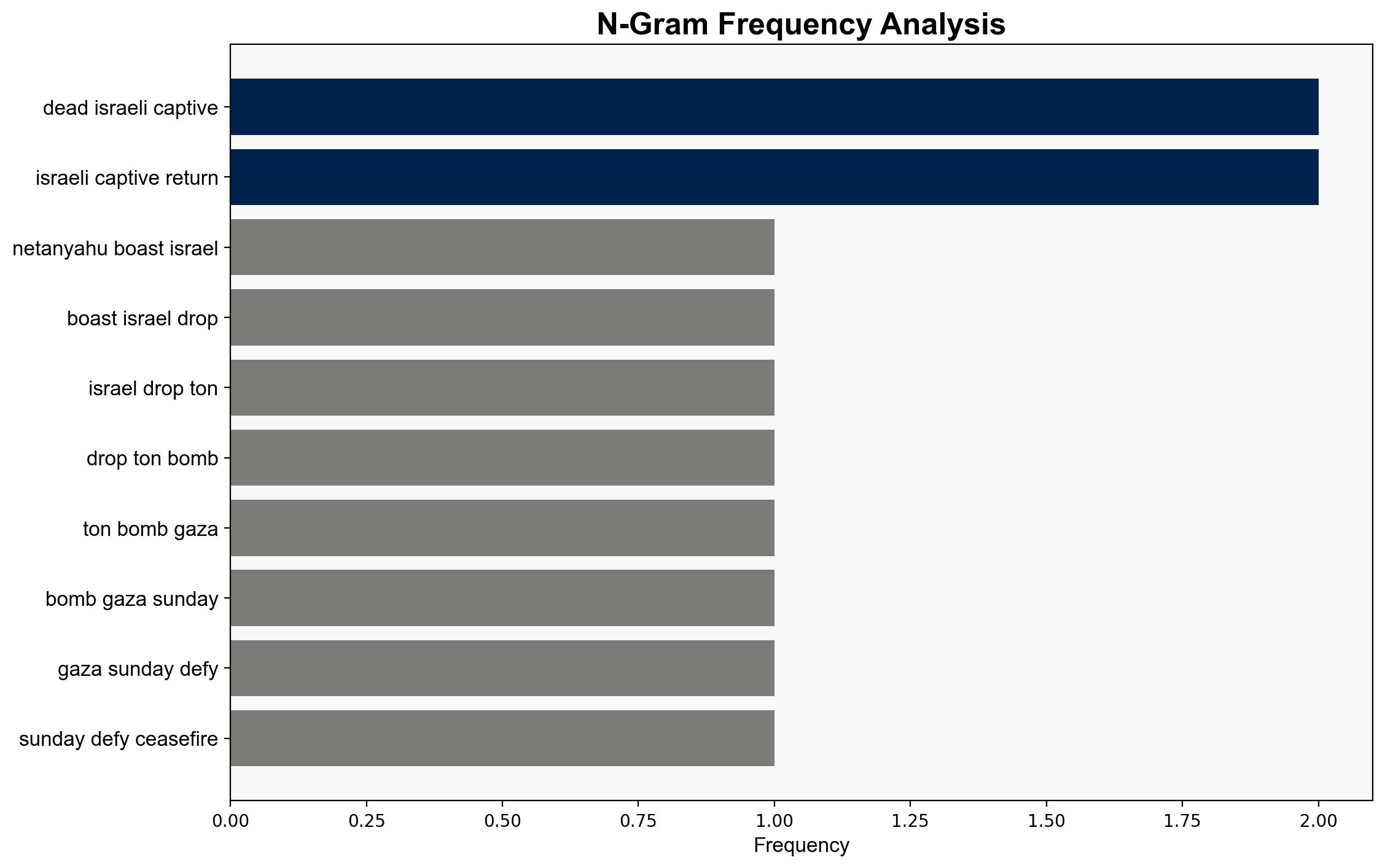Netanyahu boasts Israel dropped 153 tons of bombs on Gaza on Sunday defying ceasefire – Globalsecurity.org
Published on: 2025-10-22
Intelligence Report: Netanyahu boasts Israel dropped 153 tons of bombs on Gaza on Sunday defying ceasefire – Globalsecurity.org
1. BLUF (Bottom Line Up Front)
The most supported hypothesis is that Israel’s military actions in Gaza were a strategic decision to assert dominance and deter future attacks, despite the ceasefire agreement. Confidence level: Moderate. Recommended action: Engage in diplomatic efforts to reinforce ceasefire agreements and prevent further escalation.
2. Competing Hypotheses
1. **Hypothesis A**: Israel’s military action was a deliberate strategy to undermine the ceasefire and exert military dominance over Hamas, aiming to deter future attacks and assert control.
2. **Hypothesis B**: The bombing was a reactionary measure to a perceived immediate threat, possibly due to miscommunication or misinterpretation of events on the ground, such as the explosion caused by unexploded ordnance.
Using Analysis of Competing Hypotheses (ACH 2.0), Hypothesis A is better supported by Netanyahu’s public acknowledgment and the strategic pattern of Israeli military responses. Hypothesis B lacks corroborating evidence and relies on the assumption of operational errors.
3. Key Assumptions and Red Flags
– **Assumptions**: Hypothesis A assumes a strategic motive behind Israel’s actions, while Hypothesis B assumes operational errors or miscommunication.
– **Red Flags**: Netanyahu’s public boasting could be a strategic deception to mask other motives. The lack of independent verification of the events on the ground raises questions about the accuracy of the reported actions.
– **Blind Spots**: Potential biases in media reporting and the absence of third-party verification of the ceasefire violations.
4. Implications and Strategic Risks
– **Escalation Risk**: Continued military actions could lead to a breakdown of the ceasefire, escalating into broader regional conflict.
– **Geopolitical Impact**: Potential for increased international condemnation and pressure on Israel, affecting diplomatic relations.
– **Psychological Impact**: Heightened tensions and fear among civilian populations in both Israel and Gaza.
5. Recommendations and Outlook
- Engage in multilateral diplomatic efforts to reinforce the ceasefire and ensure compliance from all parties.
- Enhance intelligence-sharing mechanisms to prevent miscommunication and misinterpretations that could lead to unintended escalations.
- Scenario Projections:
- Best Case: Reinforced ceasefire leads to de-escalation and resumption of peace talks.
- Worst Case: Breakdown of ceasefire results in full-scale conflict and regional instability.
- Most Likely: Continued sporadic violations with intermittent diplomatic interventions.
6. Key Individuals and Entities
– Benjamin Netanyahu
– Hamas
7. Thematic Tags
national security threats, regional focus, geopolitical strategy, conflict resolution





